Tetley and Sheaf St closures grip the South Bank of Leeds – what does this mean for culture in the city?
November 28, 2023
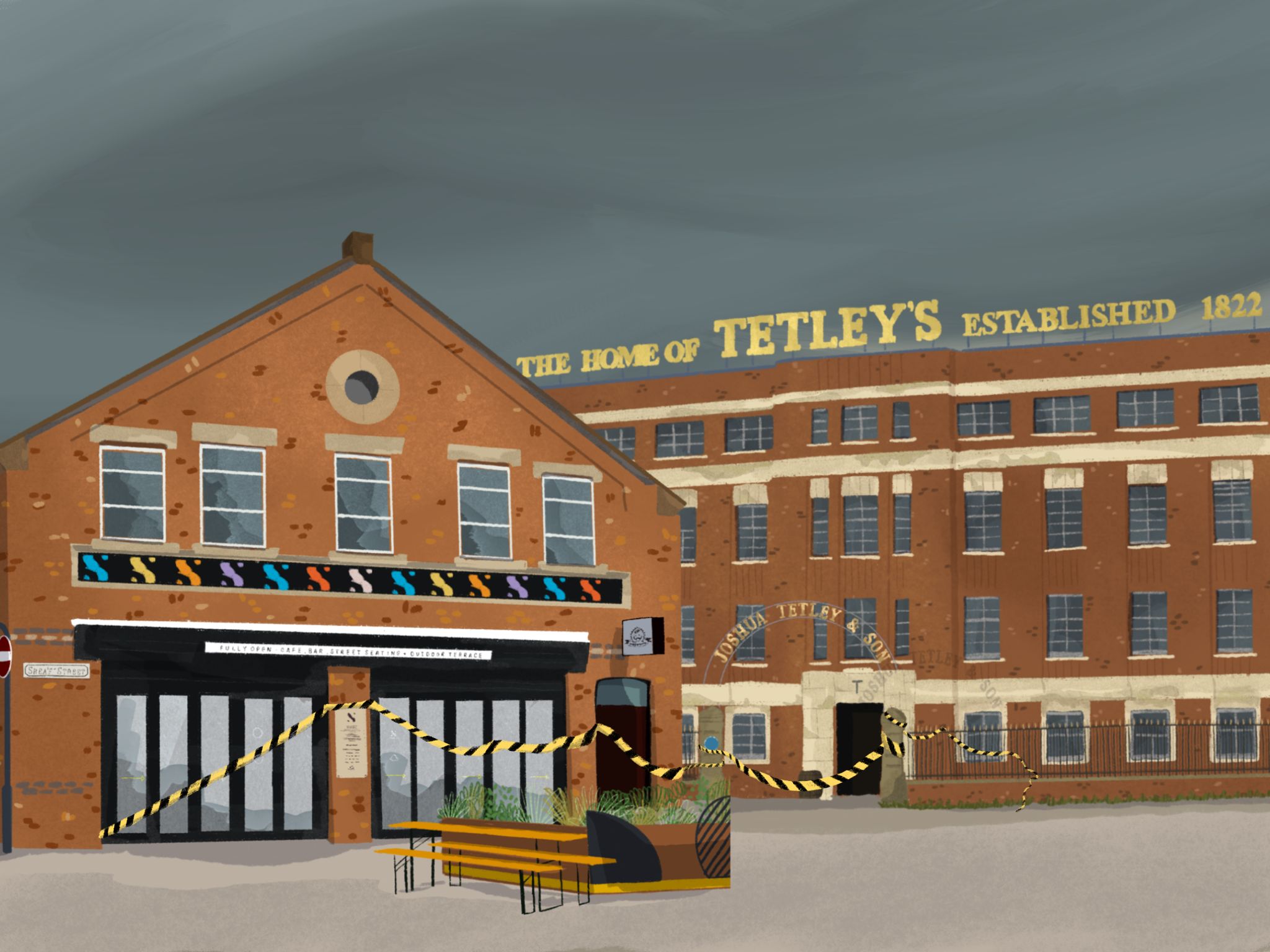
Credit: Rebecca Horswill
Two iconic venues in Leeds – The Tetley and Sheaf St – have both recently announced closure, as a new building development has surrounded them, and whilst Leeds City Council is in the midst of delivering its Culture Strategy. We look at what these closures signify and speak exclusively to the team at Sheaf St.
The South Bank of Leeds
The South Bank of Leeds has always been historically significant. An important stop in the heart of the industrial revolution, the city of Leeds wouldn’t have grown without it. Looking around the South Bank today, you wouldn’t notice.
The once mighty industrial buildings and dockyards are no longer in existence, vast swathes of wasteland have surrounded the few buildings left. Until now…
In 2017, Leeds City Council approved plans submitted by Vastint UK to develop 1.3mn sq ft of land in a £500mn regeneration scheme, to be titled Aire Park. Earlier this year, the green light was given for development of build-to-rent properties in the new site growing in Leeds’ South Bank.
The South Bank is sparsely populated with active buildings, but the few active have been important to the culture scene of Leeds. Within the immediate vicinity of this plot for development sit two venues – The Tetley art gallery and music venue Sheaf St.
The Tetley is a contemporary gallery situated in the middle of the Aire Park development area. A vital space for emerging Leeds and Yorkshire artists presenting free to the public exhibitions – including Yorkshire’s only ever Turner Prize winner, Tai Shani – The Tetley is also a space for the community, to those interested in art of all backgrounds. Events and workshops have been a common sight in the grand art deco style interior of the old famous brewery for Tetley Bitter, a beer as symbolic to Leeds as Elland Road and the River Aire.
Sheaf St was a cafe, bar and multifunctional event space. Not situated directly on the development land itself but simply across the street. Sheaf St earned a name for itself as an inclusive space championing Leeds’ up-and-coming musicians, mainly of the electronic variety. These events served as an important space for women and non-binary people of all identities to embark upon their cultural journey. To a lot of people Sheaf St meant a lot of things.
Sadly, both of these venues have announced their closure. On 31st October, Sheaf St’s social media revealed they would close with immediate effect, coming one month after The Tetley announced they’d be ‘leaving their iconic building’ at the end of 2023.
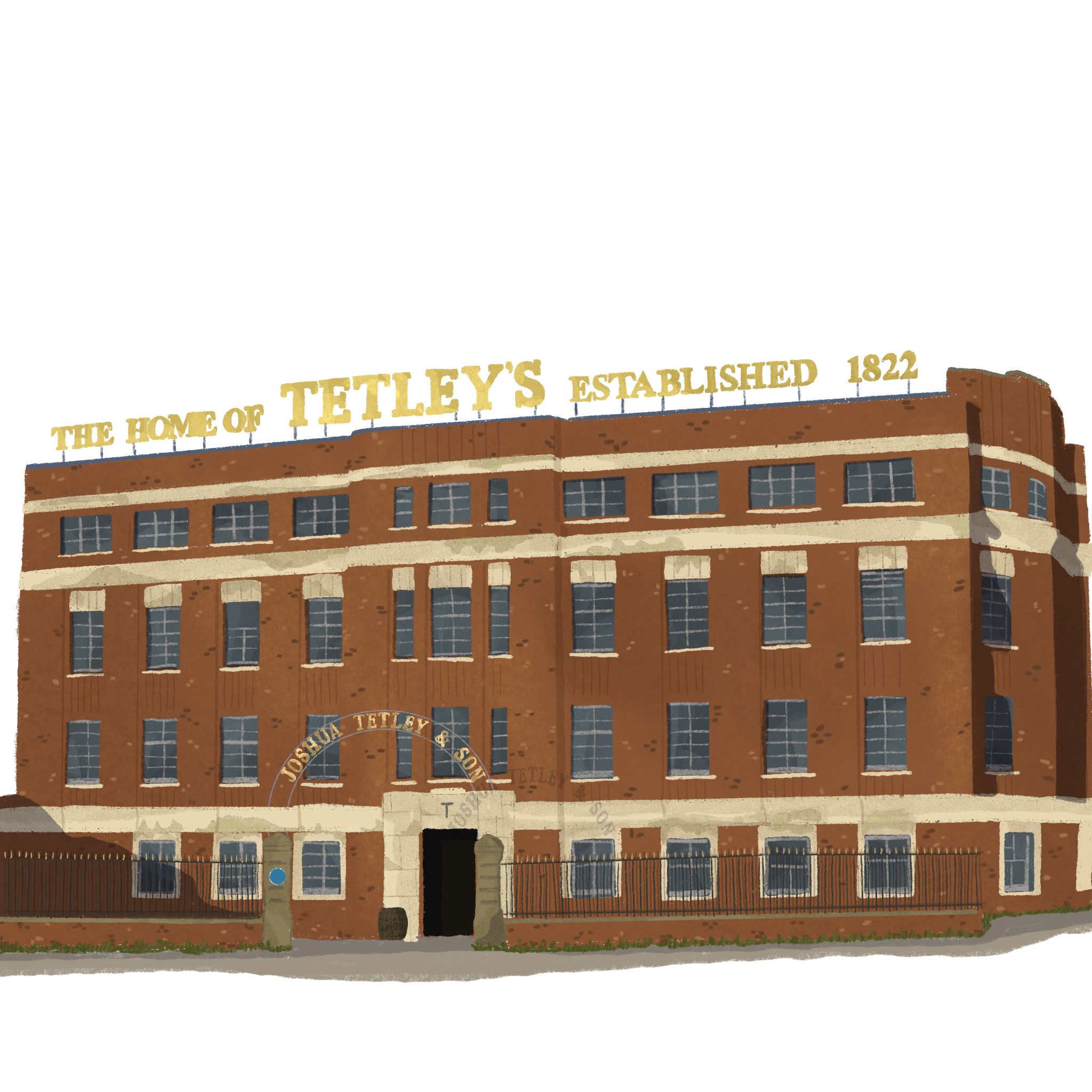
This has led to speculation that the development of the site is a factor in these closures. The Tetley building was purchased by Vastint in 2015, and the departure of the gallery from the building, at the end of a year when they’ve been increasingly surrounded by construction, gives it the appearance of a displacement. Sheaf St say they’ve been significantly impacted by the Aire Park development:
“Over the past 18 months, we’ve experienced a stark isolation from the rest of the city due to the development’s encroachment,” explained Laura Wellington, cofounder of Sheaf St, exclusively to TSOTA. Alongside trying to handle “diminished footfall, escalating operational costs, surging fees, markedly reduced per capita spending, and soaring utility and stock expenses”, the roadworks and developments in the South Bank area make it harder to draw audiences and custom, adding even more strain on the business.
Outcry and the Culture Strategy
Two beloved cultural spots in the city leaving their homes in such quick succession, set against the backdrop of a slowly built infrastructure project across the road, has been upsetting for Leeds.
“Such sad news, a fantastic gallery and community space. This will be a huge loss to the area” commented Leeds artist Jill McKnight on the Tetley’s announcement; @yayyab summarised in a post on X: “It’s kind of mad that Leeds has lost the Tetley and Sheaf St. recently. Arts and culture here is both born from and undone by this neoliberal era of leased spaces, redevelopment and gentrification. The days are always numbered.”
When Sheaf St shared the news on Instagram of their closure, they received comment after comment expressing great sadness, along with anger directed at Leeds City Council and their overall plan to support culture in the city.
The “Leeds Culture Strategy” was unanimously adopted by the Council in 2017, a document that sets out a long-term plan for the Leeds culture scene spanning from 2017 to 2030. It is too long to summarise and list all of the goals and objectives here, but the executive summary states the six “values” running through the plan include respect, generosity and honesty, whilst three of the stated aims of the strategy are to:
- Change perceptions and attitudes towards culture and the arts, moving the focus from what they cost to what they create.
- Value and respect artists and creativity considering both vital to the growth and prosperity of Leeds and ensuring that they are promoted as part of our diverse economy.
- Embrace and celebrate the differences in our communities, inviting artists and thinkers from all corners of the world to sit alongside us, and find new connections with Leeds.
Simply put, the heart of the Culture Strategy is about celebrating and embracing the culture scene with a holistic approach. An approach which may not offer short-term monetary incentives but offer long-term growth in the culture sector.
With all these superlatives and positive aims and objectives surrounding cultural growth, it raises the question of how the closure of venues in the South Bank fits in with the council’s Culture Strategy.
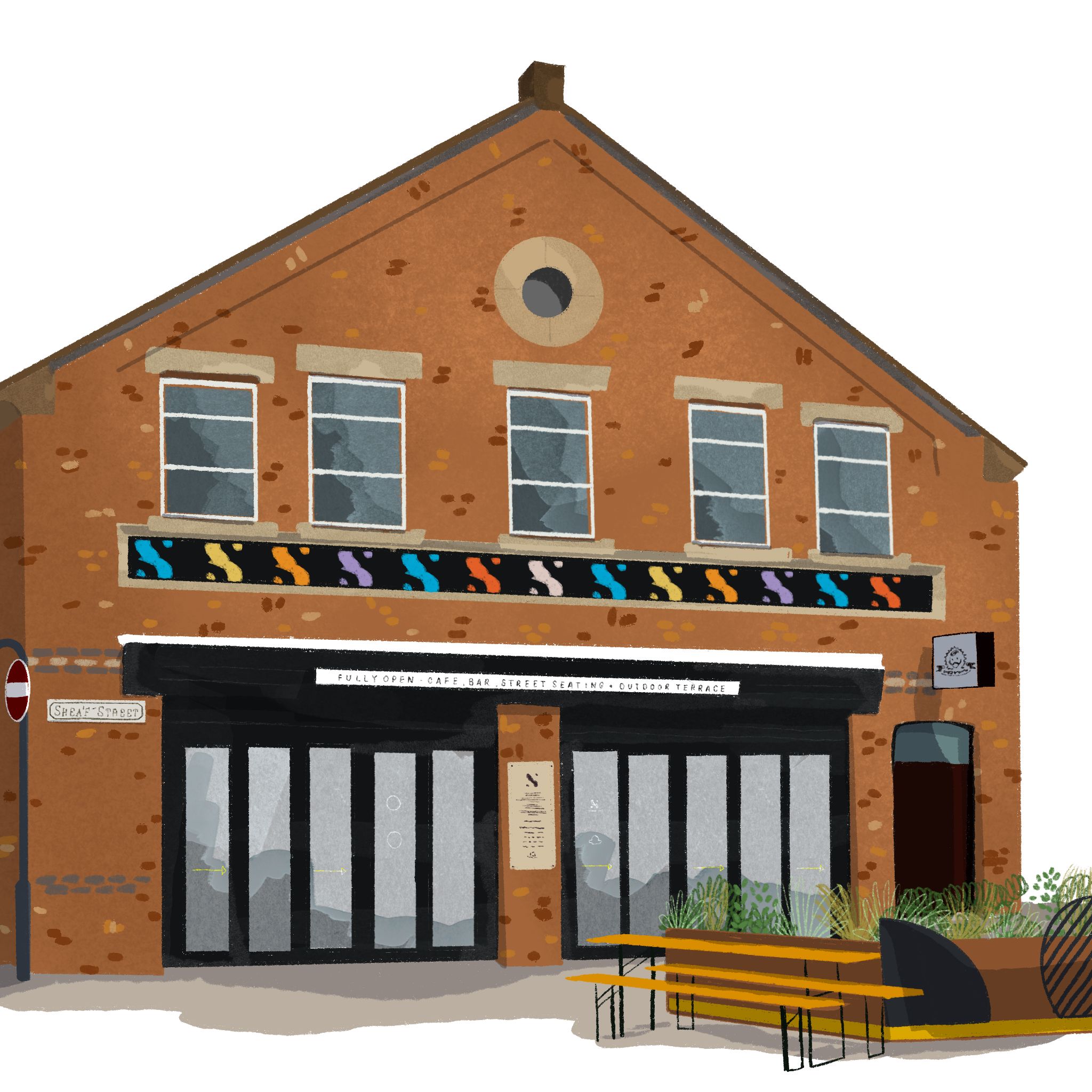
The Big Picture
For Laura, trying to work with the Council to protect her business has been revealing.
They “raised alarms about potential isolation” following the initial announcement, seeking assistance without tangible results, as well as presenting a “2030 vision for the area” in 2021, offering a solution to protect independents in the area from high land values using anticipated government funding. Evidently, the Council did not act on Sheaf St’s proposals.
The Culture Strategy states that ‘creativity should be considered vital to the growth and prosperity of Leeds.’ According to a Council press release, Aire Park is being pursued to offer “developers the option to deliver an architecturally unique building, housing a mix of predominantly residential units.” The press release makes no mention of the potential cultural impact the development may have, nor any relevant steps taken to protect cultural venues in the area. There appears to be no synergy between the cultural plans of the city and the property development plans of Leeds South Bank. Especially regarding their stated value of “resilience”. More specifically, “great art must be embedded in the city”.
On the 27th November, Vastint revealed its plans for the Tetley building, including a food hall, a business lounge, an office and a bar. Whilst the Aire Park architecture director believes the renewed building will “continue to act as a beacon to attract both locals and visitors”, not everyone will be convinced of the cultural promise of a business lounge.
After these recent events, public sentiment towards the development and the council is at a low point. Many will agree with Laura that the Council “currently lacks the authority to safeguard communities or cultural assets in the face of developments.”
In the Council’s defence, they can’t take the full blame for the closures. The Tetley have been open about the fact they are leaving their building because the lease is up, not because Vastint forced them out. Thankfully the team behind the gallery will be relocating in the new year, which should mean more of the great commissions and projects they’ve become celebrated for. The team behind Sheaf St meanwhile will continue work on Testbed, a new venue picking up momentum, specialising in big name DJ nights. The spirit of Sheaf St will hopefully live on in the team’s new venture.
The Council could also argue that the Culture Strategy makes no promises about protecting venues near Aire Park, or stepping in to salvage businesses or organisations. But there is an important audience being lost as a result of everything happening in the South Bank. The Tetley and Sheaf St drove footfall, sold tickets, brought new artists to Leeds from around the UK and abroad – all the things that our venues and organisations do to build a city’s reputation and its cultural stock. As products to help sell Leeds to the world, to draw investment and to make its people proud, both Sheaf St and the Tetley were invaluable.
For Laura, the South Bank situation represents a deeper issue. “Policies must be established to support those who genuinely contribute to the city’s character, or else we risk the transformation of the city into a soulless entity,” she argues. “In contrast to other UK cities boasting figureheads like Andy Burnham and Amy LeMay, who champion and understand the significance of cultural venues, Leeds appears to be missing a crucial opportunity.”
“It’s time for Leeds City Council to take note of the successes seen in other cities, appreciate the value of its cultural sector, and actively support its growth and sustainability.”
So, can Aire Park fill the creative space left by the Tetley and Sheaf St? What culture will it bring and how will Leeds feel the benefits?
The city will have to wait and see. Whilst the Council and Vastint continue with their projects, speculation and public frustration will continue to shift in ways they can’t control. Closure of beloved cultural venues aren’t all the council’s fault, but they represent the very thing the Culture Strategy was set up to prevent. In terms of getting the sector and people of Leeds on board with the Culture Strategy, the last few months have been damaging – if the Council isn’t careful, this could become a demolition.
Filed under: Community
Tagged with: aire park, clubs, cultural venues, development, Gentrification, leeds, Leeds art, leeds city council, leeds culture, leeds culture strategy, sheaf st, The Tetley, venues

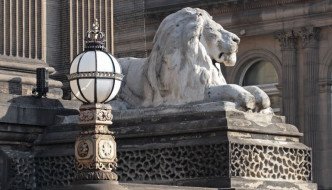
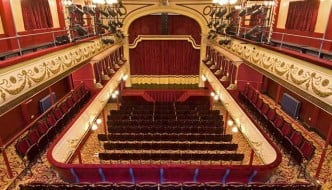
Comments